Text Hist: 20th Century
1/21
There's no tags or description
Looks like no tags are added yet.
Name | Mastery | Learn | Test | Matching | Spaced |
|---|
No study sessions yet.
22 Terms
retrofashion
throwbacks to clothing style of the past
Charles Fredrick Worth
Considered the father of haute couture, English designer established the first true fashion house in Paris in 1858, revolutionizing fashion by showing clothes on live models and introducing seasonal collections, He is also credited with creating the Princess Line, a popular silhouette in the late 19th century.
Christian Lacroix
French fashion designer
The Princess Line
A dress design line running from the bust through the waist to the skirt to flatter a woman’s natural figure, named after Empress Eugenie
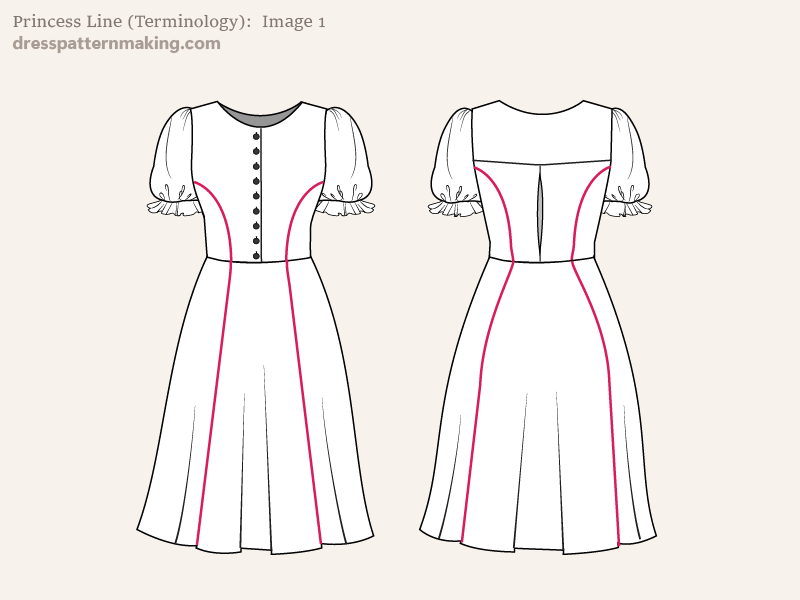
Mariano Fortuny
Designer known for Delphos dresses made of pleated silk, inspired by Greek styles, intended to be worn without corsets.
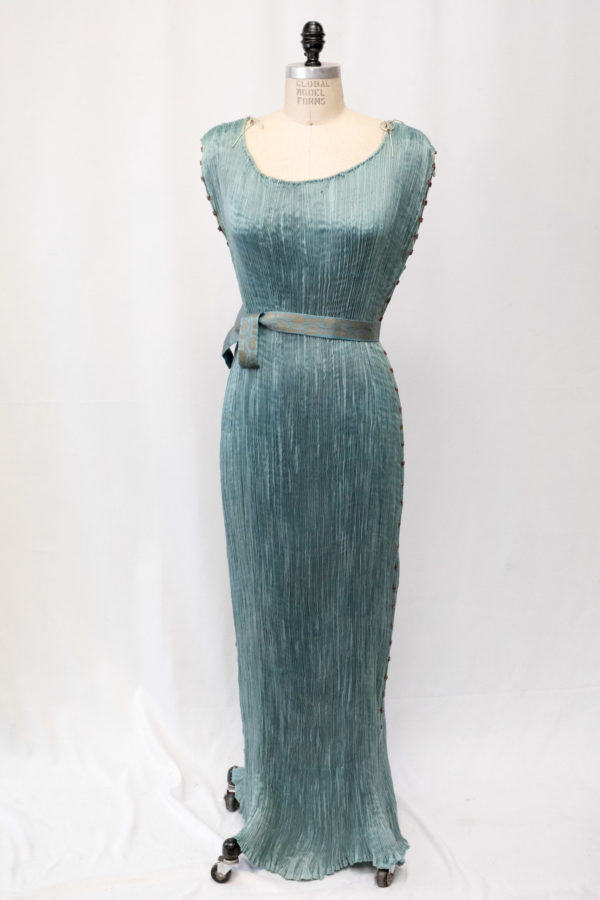
Paul Poiret
Fashion designer in the 1910s who liberated women's clothing from corsets, introducing the hobble skirt and harem pants.
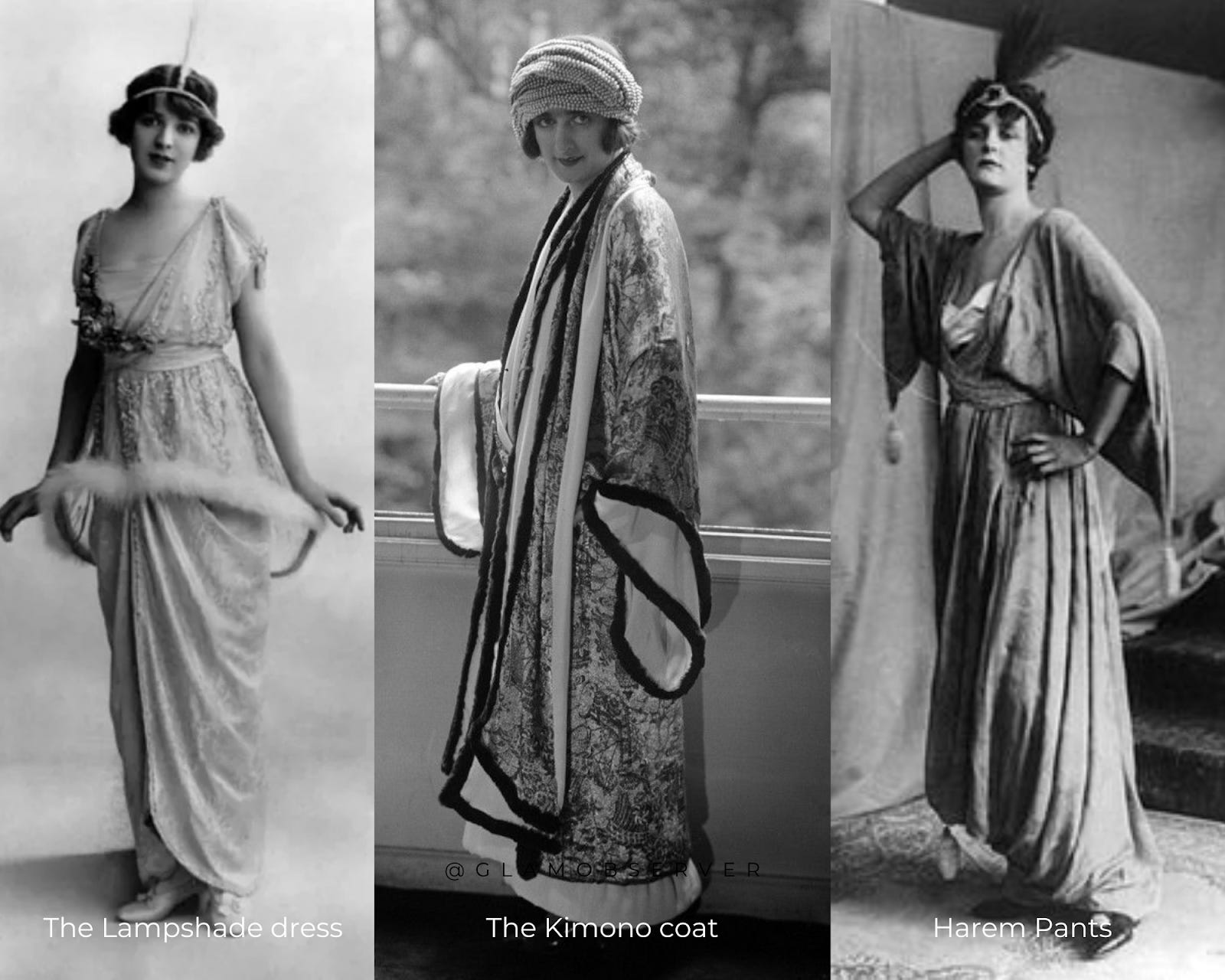
Coco Chanel
A 1920s designer known for her tweed suits, little black dress, and unlined tailored pieces.She revolutionized women's fashion by promoting comfort and practicality, emphasizing elegance without excessive ornamentation.
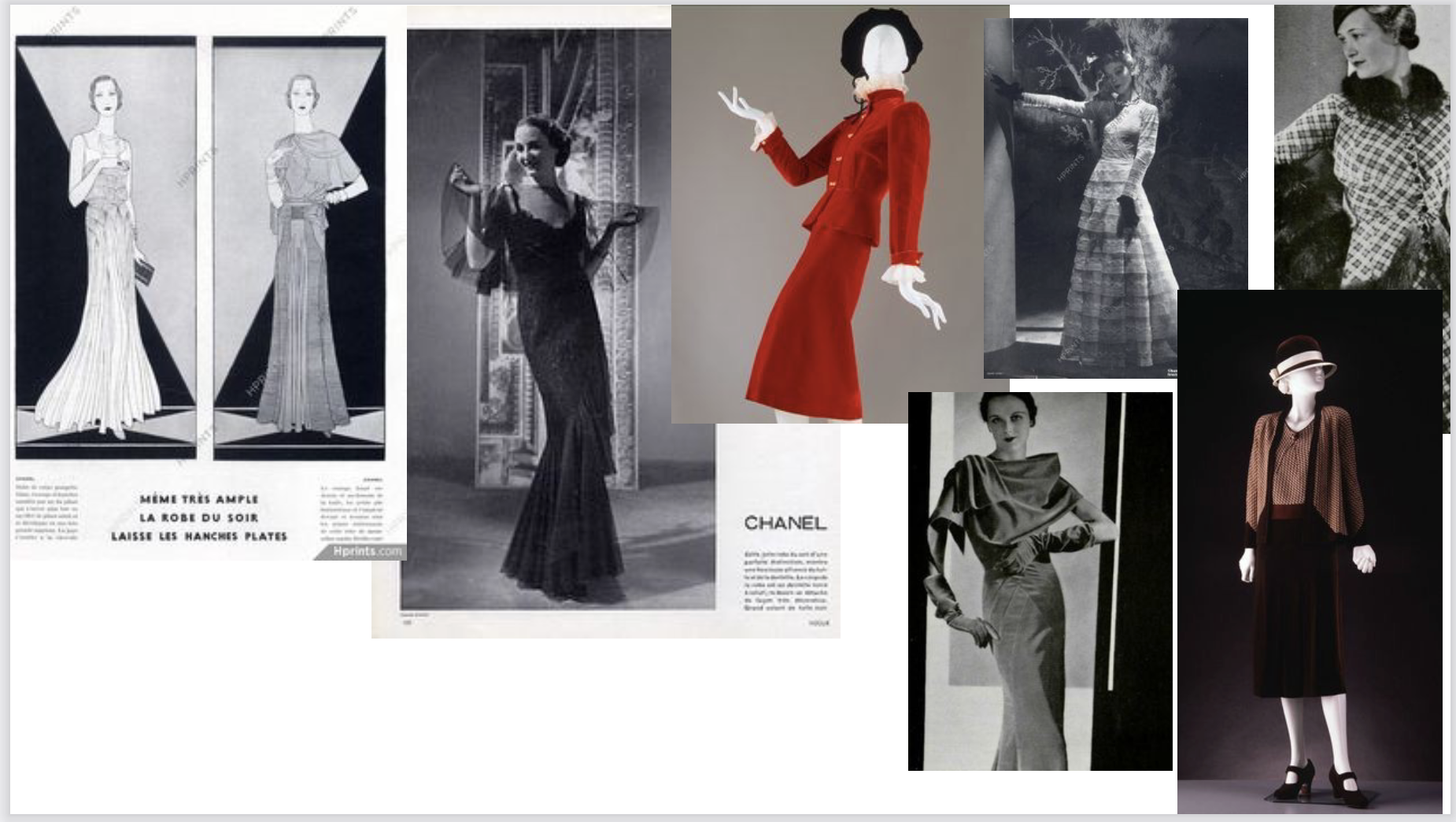
Else Schiaparelli
A 1930s designer known for her use of shocking pink and innovative use of zippers in dresses, surrealist art motifs
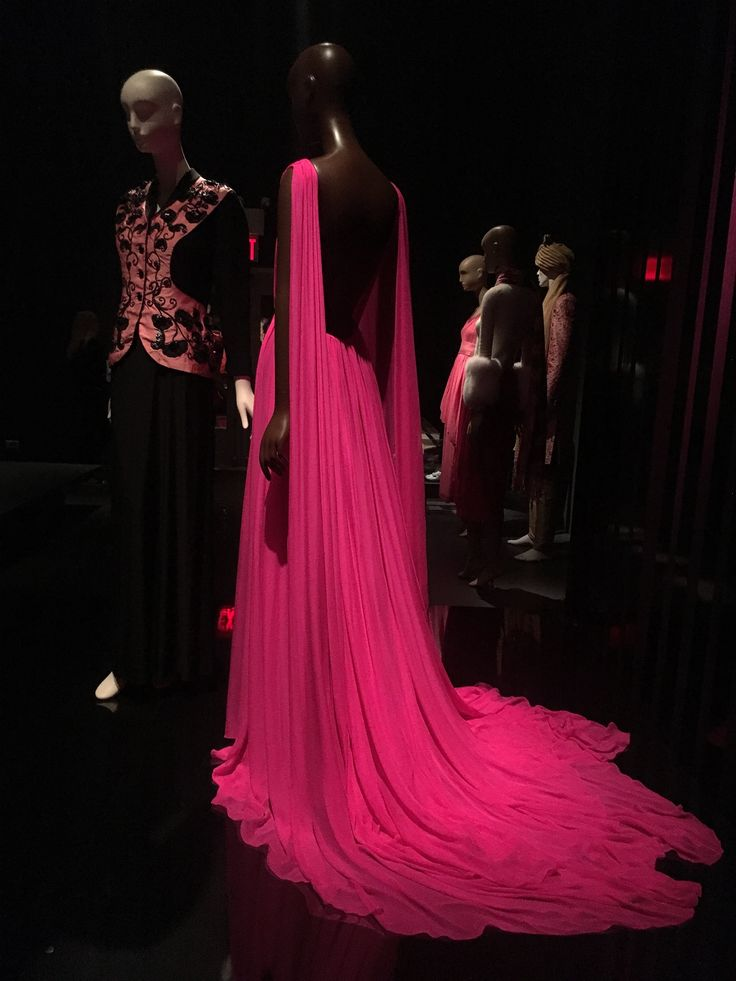
Madeline Vionnet
A 1920s designer known for cutting clothing on the bias for a better fit and stretch.
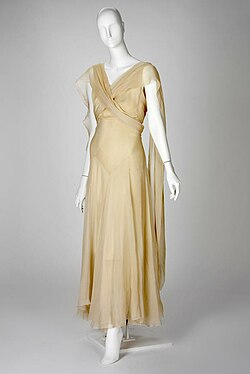
Gilbert Adrian
Costumer known for his work in the late 1930s on films like The Wizard of Oz, popularizing ready-to-wear pieces.
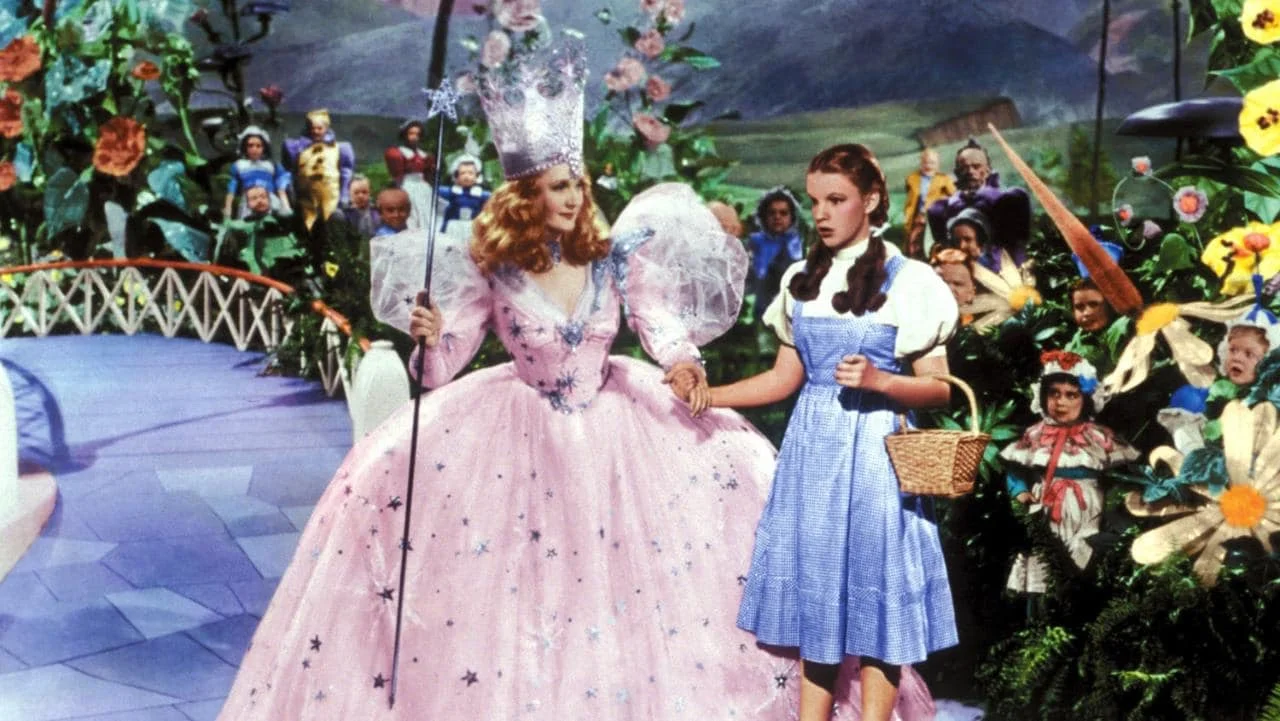
Christian Dior
Fashion designer known for his post-WWII designs featuring a tight bodice and a wide skirt, the New Look- came about in 1947
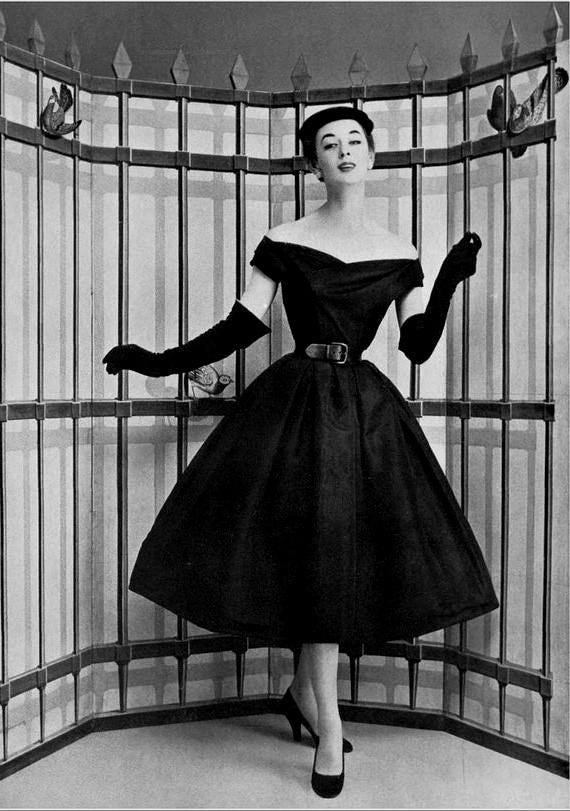
Edwardian Fashion (1901-1910)
Art Nouveau influences
A combination- one piece undergarment step in with some fit throughout the body with darts
Chemise- shirtish thing
Petticoat- a skirt with ruffles along the bottom called dusters, padded out waist
Corset- metal boning, pushes fleshy parts of hips towards your butt for rounder shape in back, monobosom shape for breasts pushed together
The dresses:
Bodice- top of dress
Skirt
Silk which would reflect light
Embossed velvet
Gibson girl style- Charles Dana Gibson American illustrator with fashionable women with big soft buns atop the head
Taxidermied animals atop hats and clothing- some species were hunted till extinction (Audobon society stopped this)
The invention of motorcars led to the invention of the duster jacket, and watches on the wrist
the S curve
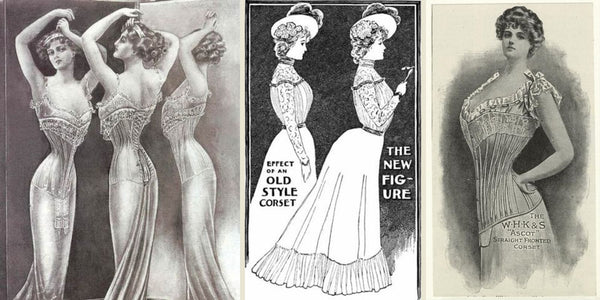
Titanic Times Fashion (1910s)
Looser silhouette
Kimonoish silhouettes
Hobble skirt
Art Deco- scalloped shapes
WWI- different access to materials, practical fashion, reuse of materials
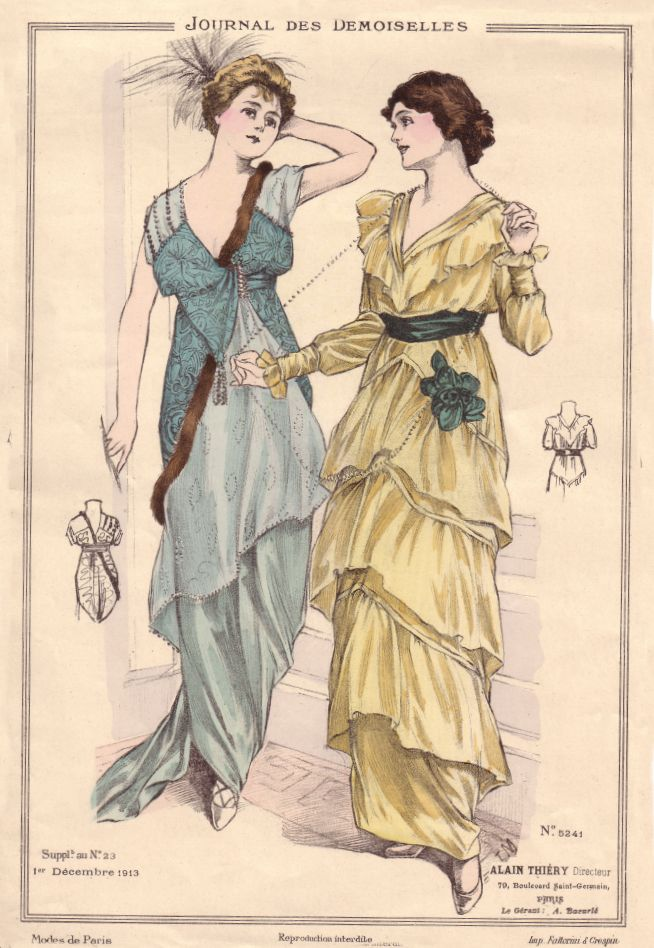
1920s Fashion
Marked by tubular dresses, bobbed hairstyles, and the flapper style, Egyptian art deco motifs influenced by the discovery of King Tut’s tomb, the brasserie- new undergarment, didnt have much support, was meant to flatten to accentuate the breast
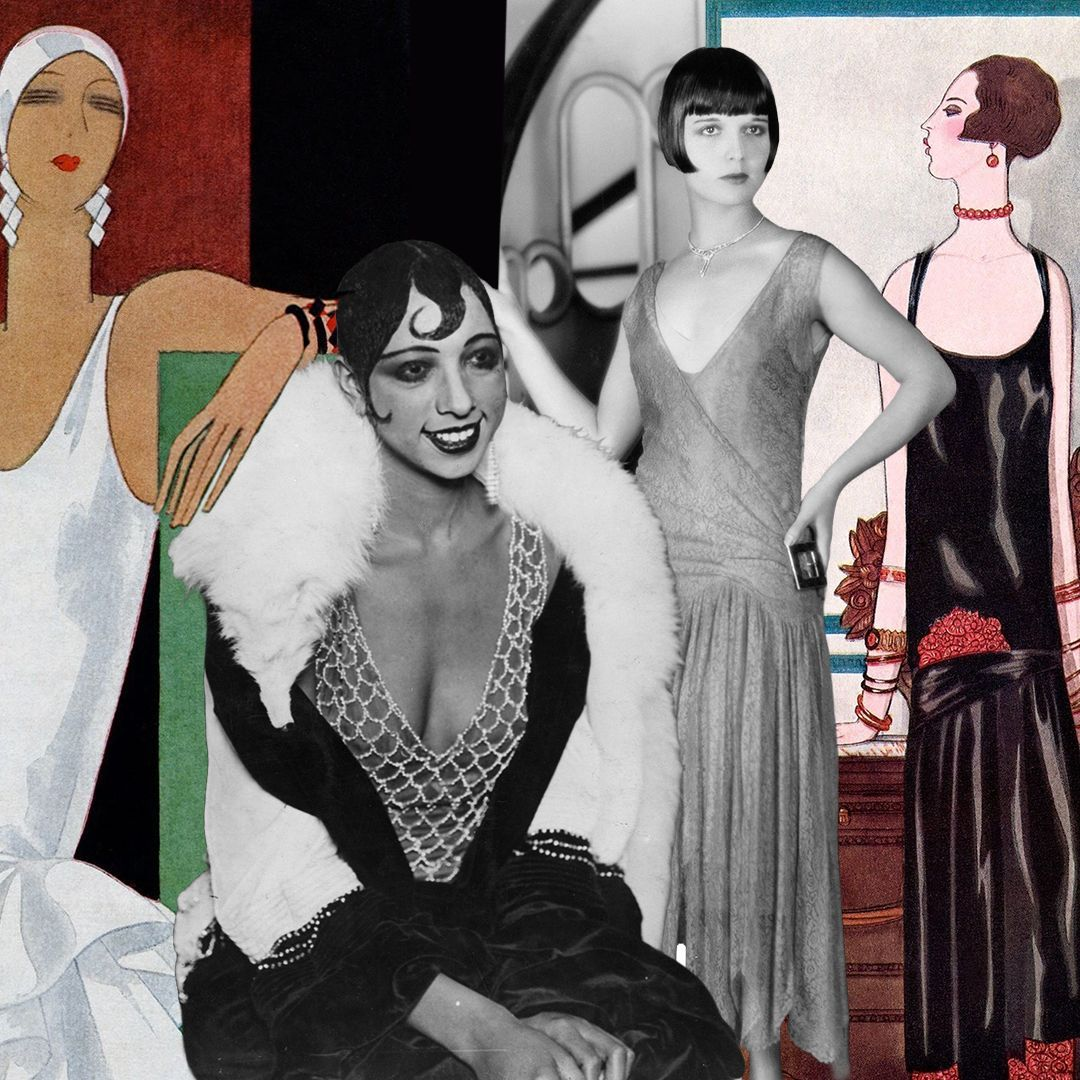
1930s Fashion
Moving away from tubular towards with fullness in hips and sleeves
The Great Depression- women playing tennis, going and doing activities
More revealing beach apparel
Shifts towards fitted style in dresses with cutting on the bias
undergarment industry booms because, without corsets women wanted to shape their bodies for new styles
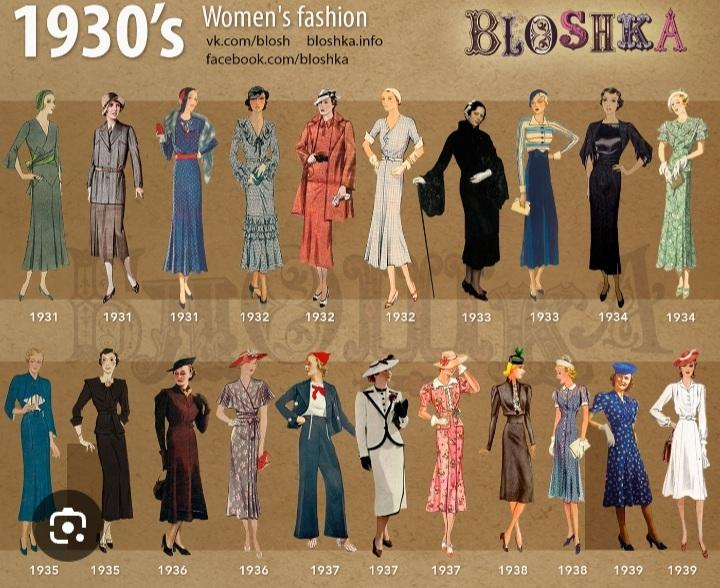
1940s Fashion
Invention of the shoulder bag- derived from fieldbags that men carried in the war
Metal fasteners not available because of the war effort so buttons became popular
2-piece skirt suits
Turbans appear- from the Caribbean Latin music craze at the time
retail fashion shopping gains popularity
when Paris falls to Germany, American fashion steps up
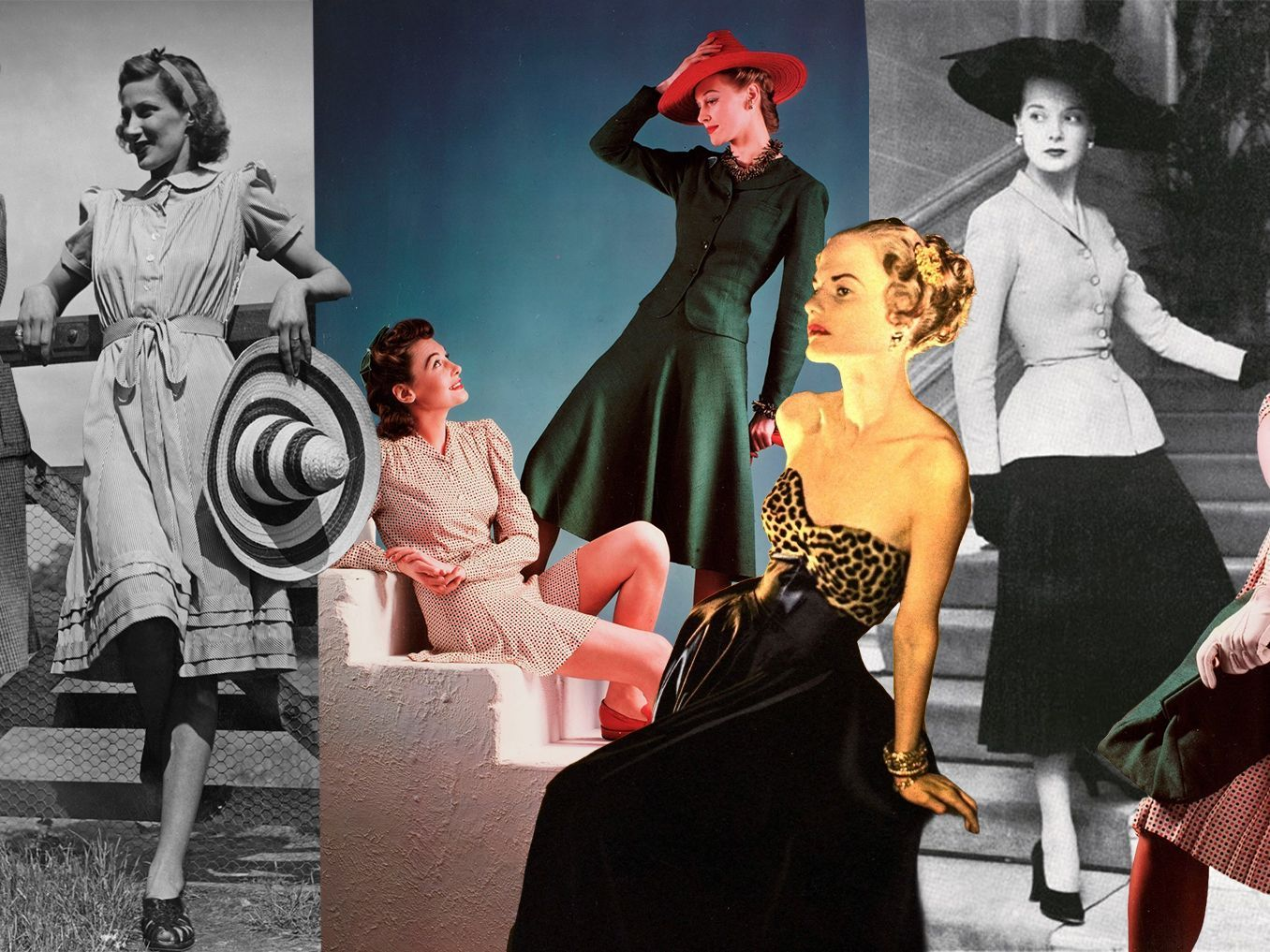
1950s Fashion
Audrey Hepburn
Post WWII feminine image in response to the masculinity of wartime fashion
Glamour
Lucille Ball- made maternity clothes fashionable while pregnant on I Love Lucy
The Kennedys
Jackie O
Anne Low- created her wedding dress, private tailor for the rich, underrecognized due to her blackness during a time before and during the Civil Rights Movement
Went around campaigning for her husband’s presidential run to the country club women she was socializing with
bouffant, sunglasses, pillbox hat
Her family was very wealthy and popular
Wearing an Oleg Cassini design that looks like Chanel during the assassination and worked closely with him
She only wore pastels because she had dark hair.
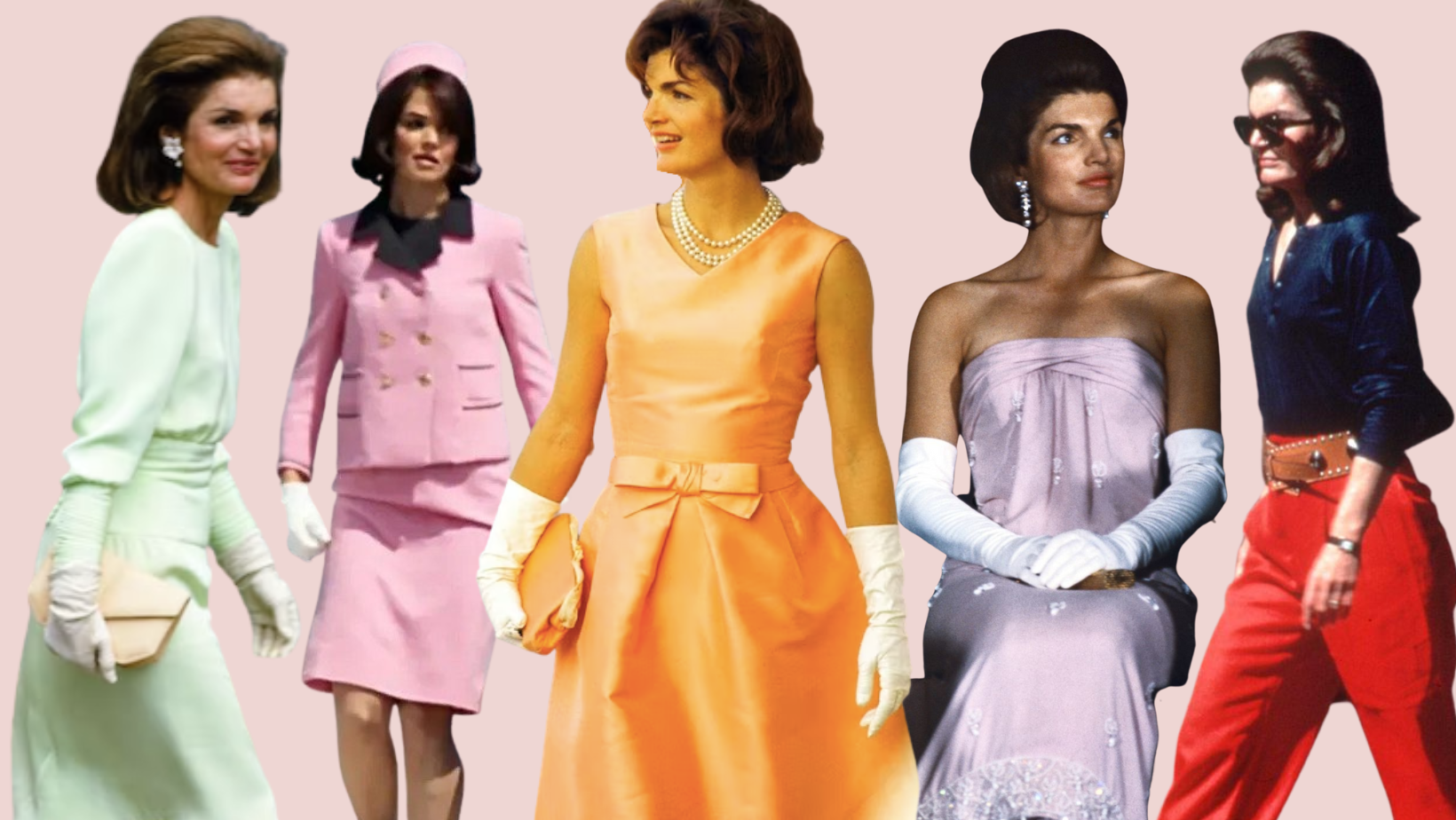
1960s Fashion
The space race started to influence fashion
India’s textiles were influenced by the new government there
British fashion
Mary Quant- invented the concept of short dresses and fun tights, Mod fashion, British, hot pants
Kensington and Baranby
Twiggy - models for Quant
Black models enter the scene
The founder of Ebony magazine, John H. Johnson, was married to Eunice Walker Johnson, who was a co-founder and influential figure at Johnson Publishing Company
Mrs. Johnson created her own fashion shows on her own dime to photograph and print in Ebony magazine
Andy Warhol
Paper dresses made that were meant to be worn and thrown away
Yve St. Laurent
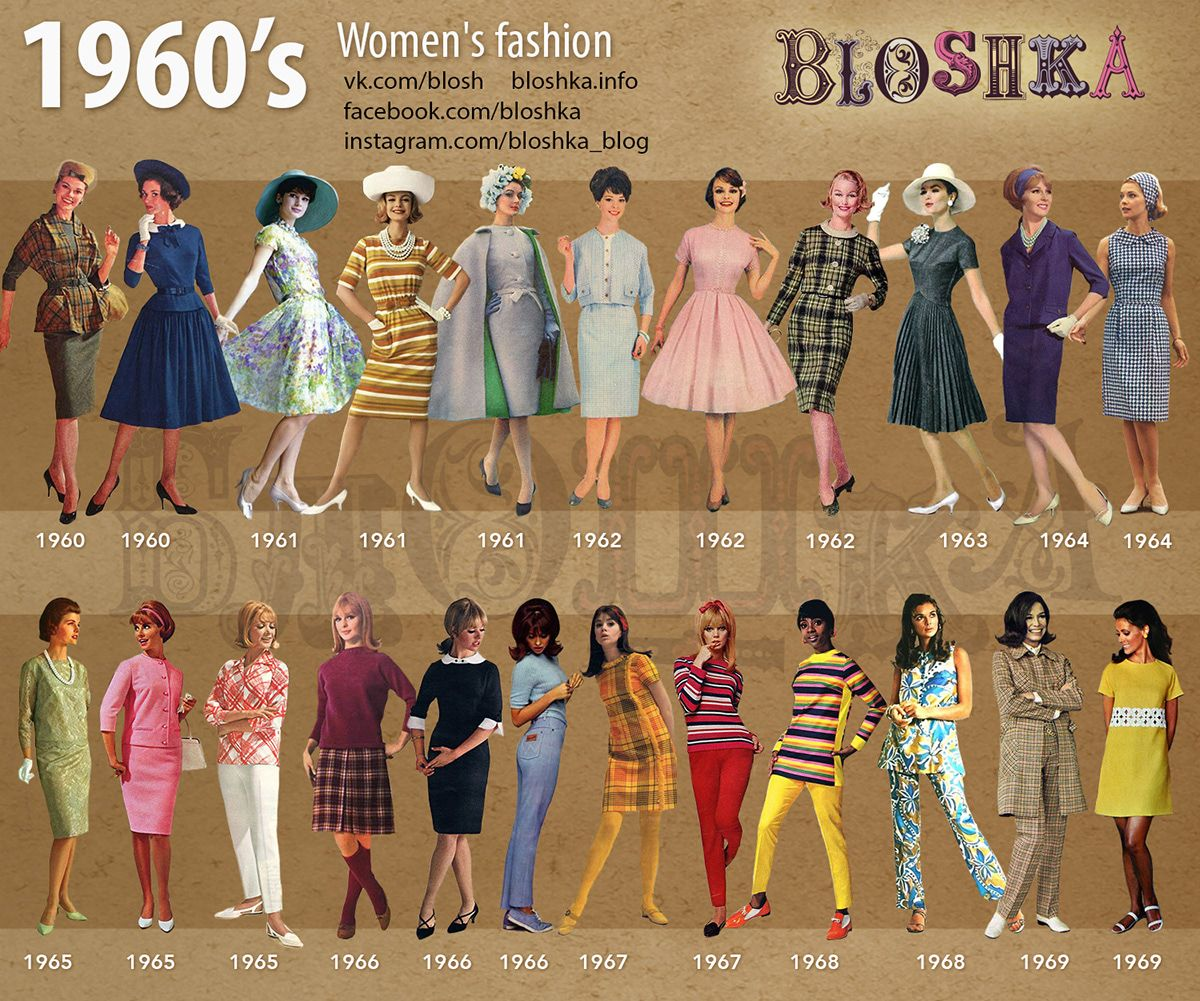
1960s: beatniks, hippies, mods
beatniks-played coffee shops in london
hippies- ppl against the vietnam war, stressed love and freedom
mod- mini skirts, british/cali, twiggy
1970s Fashion
Feathers and leathers- inspired by Native American culture
Paisley- India movement
Nightlife disco culture was born in England
Urban cowboy style- corduroy, denim
Brooke Shields- Calvin Kleins
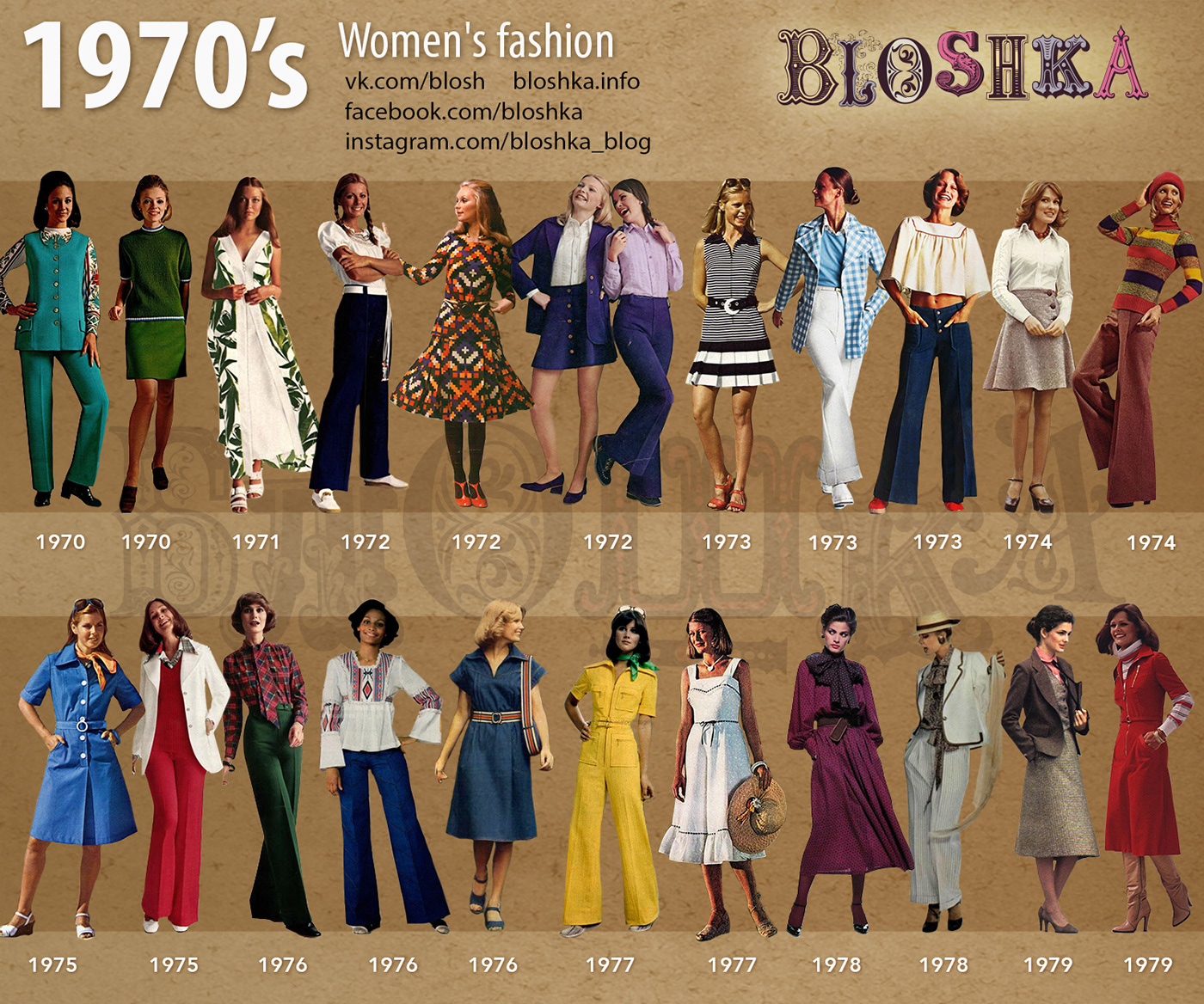
1980s Fashion
Princess Diana- cropped jackets over dresses- Spencer Jackets/Boleros, the revenge dress,
Ralph Lauren- king of licenses lol
Color season analysis became a thing, changing how people shopped
MTV- quick access to music videos, inspiring fashion
Janet Jackson
Madonna
Miami Vice- an extremely popular TV show, made pastels popular for men’s wear and huge impact on men’s fashion overall, black and white men in leading roles which was controversial at time
1990s Fashion
Grunge culture- Kurt Cobain, Doc Martens
Popularization of African prints
Mainstreaming of Latin flavors in American food
Martha Stewart- homemaking, cooking, decorating, hosting